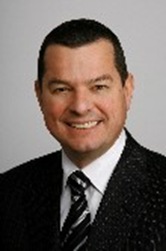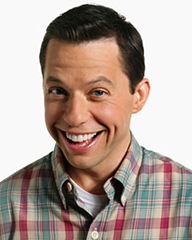Craig Welsh is a bastard who used be be from St. John’s. Now he lives in Iqaluit where he spent some time the other day pondering some of the candidates elected recently.
You can find his blog post here: towniebastard.blogspot.com
All of which is a preamble to I'm sure there's a punchline to last night's election results in Quebec, but I've never really got French humour. For example, Ruth Ellen Brosseau won her seat despite:
A. Not living in the riding.
B. Going to Vegas in the middle of the campaign.
C. Her riding is 98% French and she can't really speak it that well.
D. Appears to have not even visited the riding during the election.
Yet she got 40% of the vote, won the seat and now gets a $150,000+ a year job, which is a bit of a step up from assistant manager at a pub.
So yes, there's a punchline here somewhere, I just don't get it. Can someone explain French humour to me, please?
A wise man, experienced in the arts of the campaign, once told your humble e-scribbler that a candidate in any given riding is basically worth about 5% of the vote total. Monday’s night result was brutal example of just how true that is. Any hint of scepticism left in this corner is gone.
The other chunk of the candidate votes in any given riding come from voting tradition, that is people who always or usually vote for the same party. The other bit is driven by the campaign itself, usually at the national or provincial level.
Now there are individual candidates who can count for more. We are talking averages here. So quick recap: candidate: a little. Tradition and the campaign: a lot.
Now in Quebec, as in Newfoundland and Labrador, voters also seem to make a distinction between provincial elections and federal ones. They tend to pay less attention to federal campaigns. Take a gander at some statistics on turn-out in federal elections by Memorial University professor Alex Marland and you can see the idea.
People in this province typically don’t turn up in great numbers to vote for their federal representatives. In the 60 years after Confederation, turn-out in the province for a federal election cracked 70% exactly twice. It hit the high 60s a few times but for the most part, turn-out has been less than 60% of eligible voters.
By contrast, provincial elections get turn-outs about 10 percentage points higher.
Marland puts this down to a bunch of factors including literacy levels. That night be part of it, but frankly the one idea that really seems to explain the difference in turn-out over time is proximity or familiarity. Provincial ridings are smaller than federal ones. People may know the local candidate personally and odds are good they will get the chance to shake all the hands of everyone.
The same can’t be said at the federal level. And that is reinforced by the fact Ottawa is so far away both physically and mentally for most people. Think of it as an extreme version of the old saying that all politics is local.
In other words, people don’t seem to see federal members as being as important as their provincial ones when it comes to affecting their lives. It’s hard to come up with a better idea to explain people trooping to the polls to vote for candidates with precious little life experience in some instances, let alone the kind of experience one needs to be an effective political representative in the national legislature.
There’s another notion you can add to this as well: just as people don’t seem to be as personally connected to their federal candidates as they might have been once, the relentless message from the news media is that the individual candidate simply doesn’t have any kind of power and influence. Sure candidates make some promises but you have to wonder if people actually believe that, for argument sake, any of the newly minted parliamentarians will be able to do much now that the Harper gang have a majority.
Did the voters on Flower Hill mark their “x” for Ryan because he promised to relentlessly fight to get a n inquiry into the fishing industry or because Jack Layton promised to deliver more doctors and nurses? Did they even know that Ryan - himself - thinks that is his main job now that he is off to Ottawa to spend more time with the kids?
In Newfoundland and Labrador, people have an object lesson [on all this] right in front of them. For the past seven years, local politicians counted for exactly zero compared to the Saviour of the Universe, attended by a raft of disciples who knew he crapped nuggets of pure gold every day, thrice a day. Now whether that is true or not on any level isn’t as important as the fact that some people seemed to believe it.
So if you have people getting this relentless message from politicians and from news media that everything is about Steve and Danny or Michael and Jack, and the local guy is just a placeholder or a bootlicker, you can see why people in Quebec and elsewhere might just look at what colour someone is and cast vote on that basis.
Disagree? In St. John’s South-Mount Pearl, the most visible campaign sign in the riding was a four foot by four foot sign bearing the name of Jack Layton. This was no accident. Nor was it an accident that smiling Jack was everywhere on NDP householders and in television and radio spots. Heck, even Liberals like Scott Andrews are blaming the Liberal loss on the fact that Michael Ignatieff supposedly had no charisma and people didn’t like him compared to Jack and his accordion playing smile.
There are a bunch of different reasons why people vote the way they do. Tradition counts for much of it. The dynamics of the campaign are part of it as well. But increasingly the evidence seems to be that local candidates don’t matter very much at all when it comes to voters making decisions about who gets their vote.
You can vote for a unilingual anglophone bar manager who has never visited your riding because she - or by extension the federal political system - doesn’t count in the ordinary voter’s mind.
Now place-holder candidates aren’t new in politics. England had its rotten borough and Newfoundland still has its seats where the party of choice can run a half-eaten Mary Brown’s snack box and the voters would send it off to St. John’s. It just seems that these days, individual candidates seem to count for less and less.
This also doesn’t mean that everyone who does get elected these days is a previously chewed tater. Politicians are a cross-section of society as a whole. You get your good ones and your not-so-good ones. You get your exceptional people and you get your oxygen thieves.
It’s just that we seem to be in a period where voters sometimes don’t seem to pay much attention to local candidates when they vote. Good, bad or indifferent, local candidates don’t seem to count for much.
And incidentally, for the people on Flower Hill, the New Democrats want to take the tax off home heating fuel. It’s just that they have also promised to back a provincial Conservative plan to make sure that anyone on fixed and low incomes will pay twice as much for electricity, guaranteed, even without taxes, while people outside the province can get the same power for about what you are paying for it now.
Not bad, eh?
The NDP aren’t alone. The Liberals and the Conservatives in your riding promised basically the same thing.
You are forgiven if you missed that bit, though, in all the clips of Jack and the squeeze-box.
- srbp -
[Proofed, edited to make sentences read more clearly]




